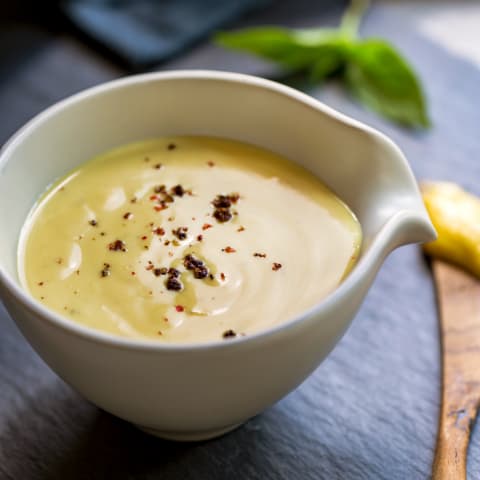“People have used black cumin seeds and their oil to treat a wide range of conditions for thousands of years,” says Vincent Pedre, M.D., mbg Collective member and board-certified internist and integrative medicine specialist in New York City. Black cumin seeds were even found in King Tut’s tomb, and apparently they got a mention in the Old Testament as being able to cure anything but death. But what makes the oil of these small, unassuming black cumin seeds so great? When you scan the label, you’ll notice a variety of beneficial compounds listed, including things like omega-3, -6, and -9 essential fatty acids and cholesterol-lowering plant compounds called phytosterols2. But the majority of its therapeutic perks probably have to do with a particularly potent active compound called thymoquinone3 (TQ), says Pedre, which is “an antioxidant with anti-inflammatory, anti-allergy, and immune-supporting properties.” Today, black cumin seed oil is sold in health food stores, grocery stores, and online as a liquid oil, as gel capsules, and in a blend with other extracts such as hemp oil. To reap its varied benefits, you can ingest it or apply it topically to the skin. Additionally, studies3 have found that a black cumin seed solution helped prevent the formation of gastric ulcers in rats. Researchers speculate that this is due to the gastroprotective effects of thymoquinone, which has been shown to inhibit acid secretion and help maintain the layer of mucus that lines and protects the gut. “Black cumin seed oil contains a key phytocannabinoid called beta-caryophyllene (BCP). BCP binds exclusively to the CB2 cannabinoid receptor. This receptor dominates in the peripheral nervous system, immune system, gut, liver, skin, and bones—so supporting it is important to maintaining health in these systems,” explains Robert Rountree, M.D., a functional medicine pioneer. Black seed oil can also be diluted with a carrier oil (or added to shampoos) and applied to the scalp to soothe and reduce flakiness. In one eight-week study out of Iran, women took black seed oil or a placebo while following a calorie-restricted diet. By the end, the black seed oil group experienced greater reductions in weight and waist circumference. That said, it’s not a magic bullet. “Most of its weight loss benefits would likely be indirect,” says Pedre. “Inflammation is a key driver in obesity, for instance, so the anti-inflammatory properties of thymoquinone could support normal levels of inflammation and therefore aid weight loss. But I wouldn’t consider it a primary weight loss aid.” Here are a few specific things to look for in a black seed oil to ensure you’re getting the best possible product: If you’re trying it for the first time, start with ½ teaspoon per day and gradually work your way up. Keep in mind, potency and serving size may vary depending on the brand, so always read your labels carefully. If you’re a cook, think of it as a flavoring or finishing oil as opposed to a cooking oil. You can use it in dressings, add it to smoothies, drizzle it over grain dishes, or incorporate it into anything you’d normally top with an aromatic oil. Just be sure you’re not drizzling on more than the recommended daily serving, and don’t add it to anything too hot or you’ll degrade its delicate nutrients. Black seed oil does have a pretty pungent, bitter, somewhat peppery flavor, so proceed with caution before you potentially ruin a perfectly good meal! If you’re not a fan of its natural flavor, consider taking it as a supplement or trying it in a healthy homemade dressing, like this one. Ingredients: Whisk together ingredients until well-combined. Drizzle onto salads or grain-based sides, or use it as a dip for veggies. Store in an airtight container in the refrigerator. “With certain health conditions, taking black cumin oil can potentially be harmful, including bleeding disorders and for pregnant women,” says Pedre. “Always consult with your physician before taking black cumin oil or any other supplements, especially if you have an underlying chronic condition or are currently taking medication.”




